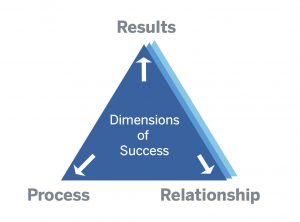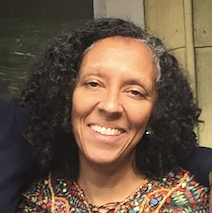Living (and Working Virtually) in Uncertainty
March 13, 2020 Leave a comment
By the time you see this post, you will no doubt have read a lot of reflections on this time of uncertainty. In a recent IISC staff check-in, we lifted up several principles and practices to support our community as we, like so many other organizations, move to largely virtual work. We hope these ideas will provide some comfort and guidance to you, as well.
Lean into relationships.
The COVID19 crisis brings into stark relief an awareness that we’ve long held dear. We are all connected and the well-being of each of us is important to the well-being of all of us. So, first and foremost, we want to lean into our relationships, engaging with our colleagues, clients, and partners as people first. If ever there was a time for people to know how much you care, it’s now. You can demonstrate that care in very practical ways.
- Pause and connect. Whether it’s a one-on-one conversation or a meeting, make space to find out how folks are doing before diving into what they are (or should/shouldn’t be) doing.
- Think respect. Knowing what we know about human differences and structural inequities, expect that people will have different perspectives and experiences of these uncertain times. Respect will look different for different people. So, upgrade your Golden Rule (do to others as you’d have them do to you) with the Platinum Rule (do to others as they’d have you do to them). Find out what respect and support look like from their point of view.
- If in doubt, communicate. Connect with people more, not less. Be as clear as you can about actions, risks, policies, and open questions. Be clear about how decisions are being made and when/how contingency plans might go into effect.
- Pick up the phone to handle tough or emotional conversations. Enhance that with video conferencing whenever possible so folks can see one another.
- Minimize unnecessary emails to leave room for critical communication.
- Be a spirit, not a ghost. In other words, let folks know that you’re available. Don’t let virtual work turn into a disappearing act. Reach out to colleagues through whatever communications mechanisms you have at your disposal.
Deepen trust.
Now is a time for us to deepen our trust in both people and the process. When we know who’s around us and what they are about, and when we have confidence that they operate with integrity, transparency, and skillfulness, it’s much easier to trust leaders and the processes that they facilitate.
- Continue to tap into one another’s strengths as individuals and as a collective. Remind yourself of what you and others are good at. Connect to folks within your network who are good at different things from you.
- Trust the process. This is often easier said
than done. It’s easier to do work in community when we trust our leaders and
have experienced their commitment to transparency and to our core values. Here
are some of IISC’s core values:
- Shared power: People have a right to be involved in the decisions that affect them so they have influence over the quality of their lives
- Love: We believe in the dignity of all human beings and in taking care of each other and of our planet. Love is a force for social change.
- Accountability: We align our work with frontline and grassroots communities of color most impacted by racism in general and this crisis in particular.
Take appropriate actions.
- Take care of yourself so you can take care of people around you. If ever there were a time to “put on your own mask before helping others,” as the airlines advise in an emergency, it’s now. Everything we can do to stay healthy makes us able to resist the virus, reduce the likelihood of spreading it, and be in a position to support others at work, at home, and in our communities.
- Take risks for what we might do. As a small organization, we face economic and other risks, just like every other nonprofit, foundation, and small company. We may need to take some financial or other risks in order to support our colleagues and serve our clients in these times.
- Don’t let perfection be the enemy of good. While it’s important to be prudent and thorough, we don’t want to be immobilized by a false expectation that we can act with perfection. In fact, that expectation is a marker of white supremacy culture that we’d do well to abandon in general, and especially in these times. Let’s figure out what “good” looks like and move forward.
An addendum: Given the specific conversation we were having as a staff, we didn’t discuss several very common sense and justice-oriented actions beyond our work community. Here are a few other important actions that we can take as individuals and as a society.
- Keep yourself informed about how to avoid spreading the virus. The CDC’s guidance for individuals and businesses is a good place to start. If you see something in social media that’s hard to believe (or if it’s new, outrageous, and too easy to believe), be sure to fact-check it before heading the advice or sharing it with others. Start with the World Health Organization’s Myth Busters page and sites like Snopes.com.
- Support mutual-aid efforts in your community. Check with your local Black Lives Matter chapter for starters.*
- Support the hourly workers in your life and community. “Tip outrageously if you are out. Say, ‘This is for the tips I know you’re missing right now.’ Call your hair stylist if you’re not coming in like usual. Ask how they are doing. Send your tip or the cost of your haircut via Venmo.*
- Advocate for government action. Remember that our government is supposed to be of, by, and for the people. Let your local, state, and national representatives know what you and your community need. Advocate for school districts to keep feeding children even if schools are closed. Insist that evictions be halted during the emergency and help people find support if they face eviction. Insist that water and utility shut-offs be halted during the emergency. Help people connect with legal aid if needed in these situations. Support efforts to provide economic relief to hourly workers and small businesses. Insist that everyone needs access to health care and all workers need paid sick leave. “Call and … talk as long as you want. Tell whoever answers the phone that you think healthcare should be for everyone. Now more than ever.”* See this list of demands from organizers for even more concrete things to demand from the government to protect the public and especially the most vulnerable members of our communities in these times.**
*Thanks to Jen Lemen for these ideas. Check out her post 31 Things You Can Do in the Time of Corona Virus for even more.
** Thanks to our friends at Change Elemental for this. See more ideas in their message, With Care.
Cultivate a strategic, collaborative mindset.
Human actions are driven by a complex set of factors, including how we are thinking, how we are feeling, and the relationship between the two. In times of uncertainty, we want to lean into a few essential aspects of the collaborative mindset.
- Assume the best. Without overlooking the difference between intent and impact, we also want to make the generous assumption that everyone is doing their best to show up and contribute.
- Offer and receive grace. If people make mistakes, offend, cause harm, or miss opportunities to do good, we want to offer grace and forgiveness. This isn’t an effort to erase the harm or error. Rather, it’s an offer to see the whole person and support them as they correct or repair. If we are the ones making the mistakes or causing harm, we invite ourselves to be gentle with ourselves, avoid self-shaming, and graciously receive grace that is offered by our colleagues.
- See challenges as opportunities and growth.Like “trust the process,” this is not new advice. And yet, in these times, it’s especially important to look for opportunities as we survey the landscape. We’re asking questions like: How can we move important work forward without face-to-face gatherings? How can we share our particular strengths in this moment? How can we repurpose “found time” that will no longer be used for workshops or convenings so that we can advance projects that have been waiting for time and attention? How can we improve our communications and deepen our relationships?

When we introduce IISC’s Dimensions of Success framework, we point out that the goal is for leaders to balance their attention on results, process, and relationship over time. The corollary is that sometimes, as collaborative leaders, we need to focus more heavily on one dimension than the others. In these times, it’s hard to overdo the focus on relationships. And, if we’re going to achieve the results we are seeking to manifest in the world, it’s essential that we build or strengthen our processes so that they are sturdy enough to carry us through these tough times.
So, as you go about your day-to-day work, and even as that work is interrupted and transformed, we hope that you’ll hold tight to the people around you, stand firm on your values, and take the actions you can to mitigate the crisis. Let’s all strive to water seeds of hope and nurture the seedlings of possibility, wherever we find them.
